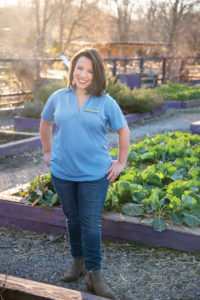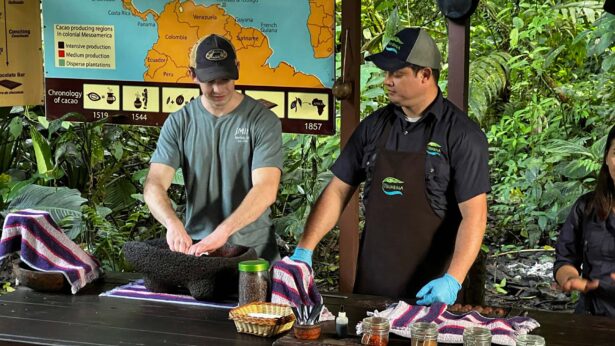By Beth Hall Davis
Not everything is idyllic out on the farm.
In rural Tennessee, Jack is gradually taking responsibility for managing his family’s 500-acre farm. As the reins are handed over from his aging father, Jack learns that the last decade has seen an increase in loans for equipment purchases and regular budgetary challenges. He encounters a deep sense of fear that maybe he can’t do this, after all. His family is counting on him, but as the bills and feelings of loneliness pile up each day, he wonders if they would all be better off without his help. For the first time in his life, Jack struggles to have a positive outlook. His thoughts even turn to the possibility of suicide.
While fictional, this account is too common across Tennessee and much of the nation. It’s a particularly worrisome trend among those in agricultural and forestry careers. As these professionals experience the isolation and fear associated with operations like the one owned by Jack’s family, the daily stress of life and the shame of possible failure often lead to tragic mental-health outcomes.
In Tennessee, a new effort aims to bring hope and intervention to those with stories like Jack’s.
Heather Sedges (Knoxville, ’03, ’07, ’10), an associate professor of human development in the UT Extension Department of Family and Consumer Sciences, is the principal investigator of the Farm and Ranch Stress Assistance Network: Southern Region. The three-year, $7.2 million U.S. Department of Agriculture (USDA) grant addresses individual- and family-level stress in farming, ranching and forestry occupations. In her role, Sedges leads 13 states and two U.S. territories toward establishing a hotline, website, resource clearinghouse, e-academy and support groups specifically for agricultural-related professions. These objectives will be accomplished through dedicated action teams comprised of representatives from participating states. Three matching USDA grants support similar initiatives across the country.

Photo by Tory Salvador
Sedges is joined by leading partners such as the Tennessee Department of Agriculture, the UT Institute of Agriculture’s MANAGE program, UT AgrAbility and the Tennessee Farmer Suicide Prevention Taskforce. Mental-health providers, health-care workers, industry organizations and other businesses that are influential in the lives of farmers, ranchers and foresters also are part of the network.
“Biodiverse ecosystems yield a healthier planet,” Sedges says. “In the same way, addressing complex issues like rural stress and suicide requires diverse thoughts and approaches to achieve impactful change. There is no single way we’re going to change the landscape of mental health, so we must learn from each other and collaborate with those outside our own disciplines and our own states in ways that create systemic outcomes.”
Sedges is a scholar with UT’s One Health Initiative, which has allowed her to work across disciplines to better understand the factors influencing stress and how it can be remediated in sustainable ways. Including family and consumer sciences experts, along with agricultural economists and communication experts, helps create real-life solutions that are more likely to resonate with those working in agriculture. Humans can’t be removed from the equation when addressing stressors that affect farm and ranch management, so it is imperative to include human-development experts on this journey.
“Even before the COVID-19 pandemic, stress in our daily lives had a great impact on our mental health and well-being,” continues Sedges. “And stress will always be there in one form or another. One reason we’re taking a long-term, multi-disciplinary and sustainable approach to combatting stress is because it isn’t going away. Ultimately, we’re getting to the root causes of the issue.”
Across the United States, suicide remains a leading cause of death, with continuously increasing rates observed during the past 20 years. From 2000 to 2016, the rate rose from 10.4 to 13.5 per 100,000 people, according to a National Center for Health Statistics analysis of data from the National Vital Statistics System.
Rates in Tennessee are higher than the national average, with white, middle-aged men at the highest risk with 24.8 deaths per 100,000 versus the national average of 20 deaths per 100,000. Other major risk factors impacting Tennesseans are a lack of access to care and treatment, rural locations that increase feelings of isolation, and substance and alcohol abuse.
With the support of a different $325,00 USDA grant, another team of UTIA researchers is working to combat the opioid crisis in Tennessee and lessen the impact of substance abuse on the lives of rural Tennesseans. While the stressors may be related and even intertwined, approaches that address both substance abuse and suicide are desperately needed, Sedges says.
Ultimately, the goal is to increase outreach to those in crisis, particularly those isolated in rural situations, and make it less daunting for them to reach out for support. Tangibly, this means increasing the capacity for professionals to connect with rural communities and increasing the ability and willingness of those in distress to access care through peer support networks and other available resources, like hotlines, online trainings and direct outreach and programming. The network also hopes to develop a comprehensive understanding of factors contributing to stress in rural communities and comprehensive prevention and intervention strategies to help individuals manage the stress of daily life.
“We want to see fewer families and communities impacted by suicide,” says Sedges. “Farmers, ranchers and foresters provide for our families and communities in healthy and sustainable ways. Now, it’s our turn to help them get healthy, too.”



